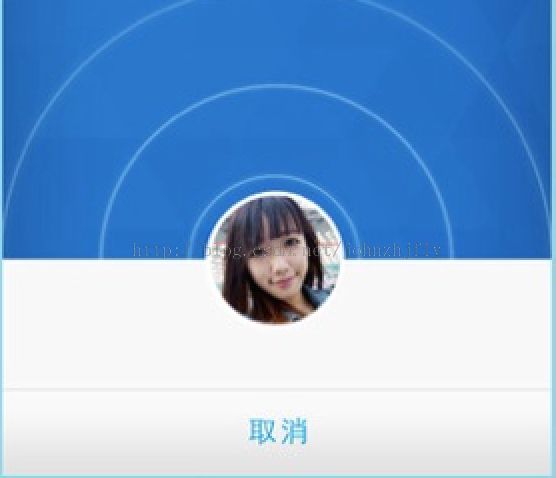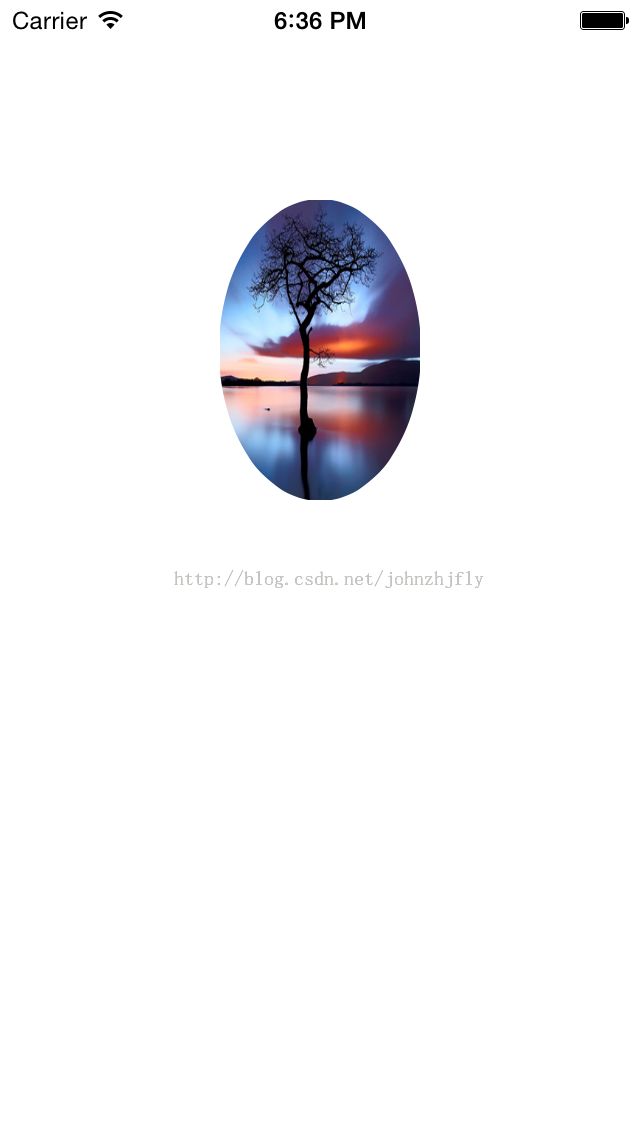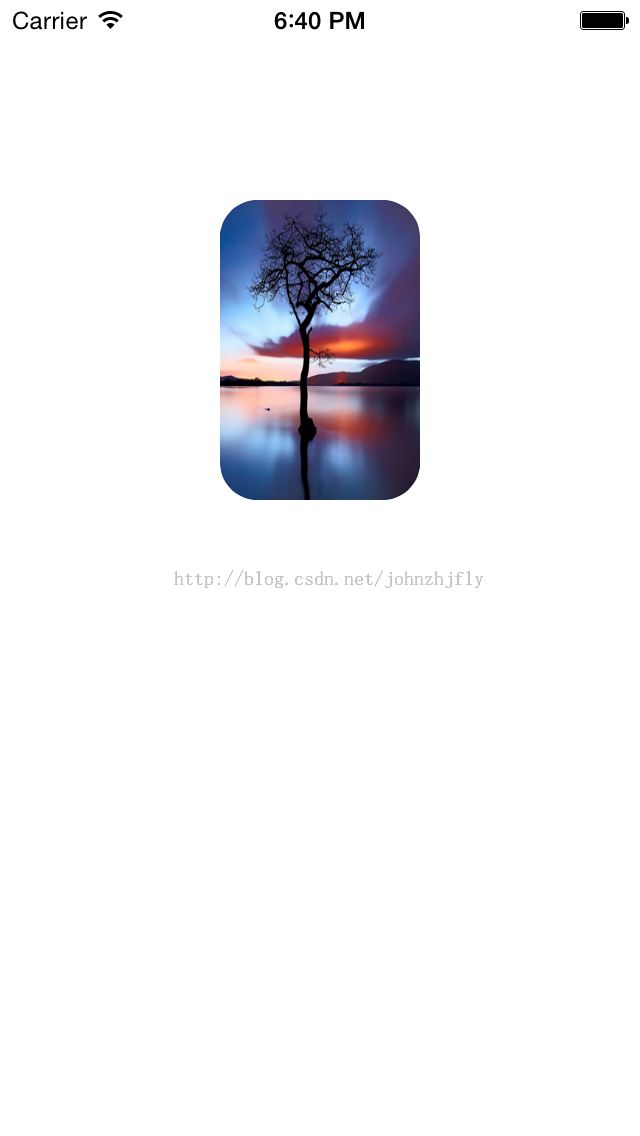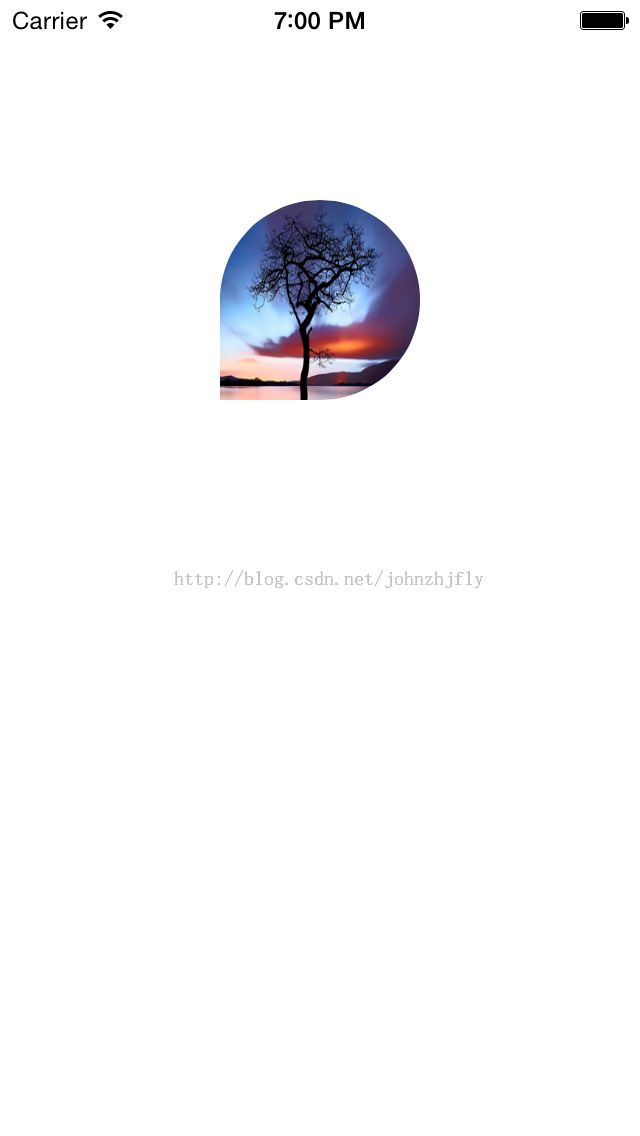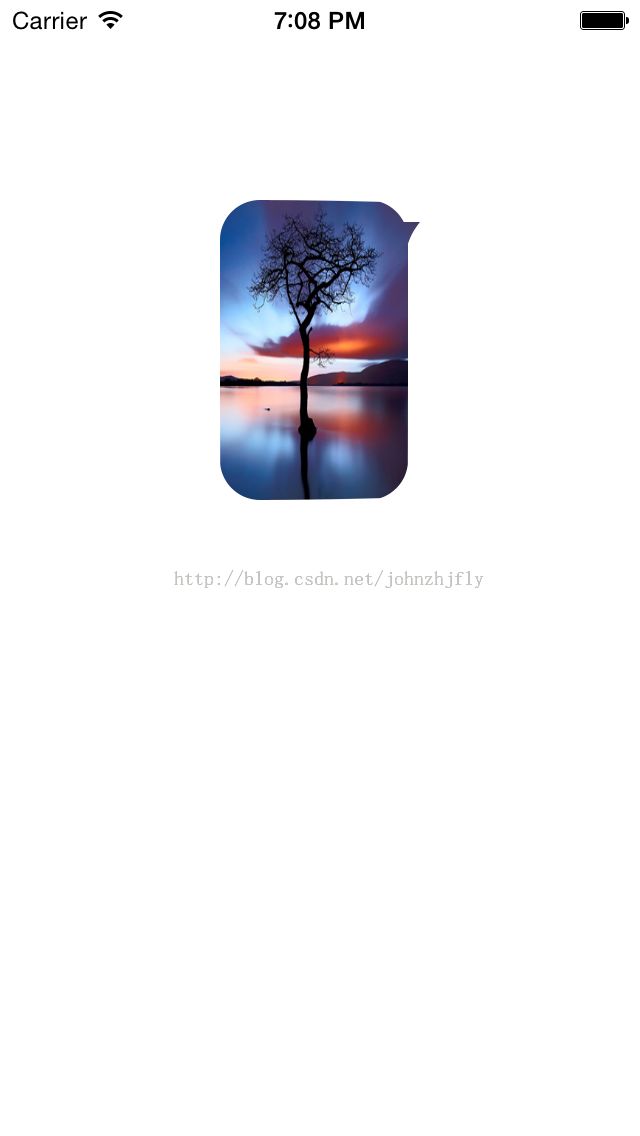iOS 不规则的ImageView
我们在做iOS开发的时候,往往需要实现不规则形状的头像,如:
那如何去实现?
通常图片都是矩形的,如果想在客户端去实现不规则的头像,需要自己去实现。
1.使用layer去实现, 见http://blog.csdn.net/johnzhjfly/article/details/39993345
2.使用CAShapeLayer, CALayer如何去实现
我们来看看如何使用CAShapeLayer去实现,
定义一个ShapedImageView,继承于UIView, 代码如下:
#import "ShapedImageView.h"
@interface ShapedImageView()
{
CALayer *_contentLayer;
CAShapeLayer *_maskLayer;
}
@end
@implementation ShapedImageView
- (instancetype)initWithFrame:(CGRect)frame
{
self = [super initWithFrame:frame];
if (self) {
[self setup];
}
return self;
}
- (void)setup
{
_maskLayer = [CAShapeLayer layer];
_maskLayer.path = [UIBezierPath bezierPathWithOvalInRect:self.bounds].CGPath;
_maskLayer.fillColor = [UIColor blackColor].CGColor;
_maskLayer.strokeColor = [UIColor redColor].CGColor;
_maskLayer.frame = self.bounds;
_maskLayer.contentsCenter = CGRectMake(0.5, 0.5, 0.1, 0.1);
_maskLayer.contentsScale = [UIScreen mainScreen].scale;
_contentLayer = [CALayer layer];
_contentLayer.mask = _maskLayer;
_contentLayer.frame = self.bounds;
[self.layer addSublayer:_contentLayer];
}
- (void)setImage:(UIImage *)image
{
_contentLayer.contents = (id)image.CGImage;
}
@end
声明了用于maskLayer个CAShapedLayer, CAShapedLayer有个path的属性,将内容Layer的mask设置为maskLayer, 就可以获取到我们想要的形状。
path我们可以使用CAMutablePath任意的构造,上述的代码运行想过如下:
如果将代码改成
_maskLayer = [CAShapeLayer layer];
_maskLayer.path = [UIBezierPath bezierPathWithRoundedRect:self.bounds cornerRadius:20].CGPath;
_maskLayer.fillColor = [UIColor blackColor].CGColor;
_maskLayer.strokeColor = [UIColor redColor].CGColor;
_maskLayer.frame = self.bounds;
_maskLayer.contentsCenter = CGRectMake(0.5, 0.5, 0.1, 0.1);
_maskLayer.contentsScale = [UIScreen mainScreen].scale; //非常关键设置自动拉伸的效果且不变形
_contentLayer = [CALayer layer];
_contentLayer.mask = _maskLayer;
_contentLayer.frame = self.bounds;
[self.layer addSublayer:_contentLayer];的效果:
如果将代码改成:
CGMutablePathRef path = CGPathCreateMutable();
CGPoint origin = self.bounds.origin;
CGFloat radius = CGRectGetWidth(self.bounds) / 2;
CGPathMoveToPoint(path, NULL, origin.x, origin.y + 2 *radius);
CGPathMoveToPoint(path, NULL, origin.x, origin.y + radius);
CGPathAddArcToPoint(path, NULL, origin.x, origin.y, origin.x + radius, origin.y, radius);
CGPathAddArcToPoint(path, NULL, origin.x + 2 * radius, origin.y, origin.x + 2 * radius, origin.y + radius, radius);
CGPathAddArcToPoint(path, NULL, origin.x + 2 * radius, origin.y + 2 * radius, origin.x + radius, origin.y + 2 * radius, radius);
CGPathAddLineToPoint(path, NULL, origin.x, origin.y + 2 * radius);
_maskLayer = [CAShapeLayer layer];
_maskLayer.path = path;
_maskLayer.fillColor = [UIColor blackColor].CGColor;
_maskLayer.strokeColor = [UIColor clearColor].CGColor;
_maskLayer.frame = self.bounds;
_maskLayer.contentsCenter = CGRectMake(0.5, 0.5, 0.1, 0.1);
_maskLayer.contentsScale = [UIScreen mainScreen].scale; //非常关键设置自动拉伸的效果且不变形
_contentLayer = [CALayer layer];
_contentLayer.mask = _maskLayer;
_contentLayer.frame = self.bounds;
[self.layer addSublayer:_contentLayer];将是这个效果:
理论上我们可以构造出任意想要的形状,但是有些形状如果你不熟悉几何知识的话是构造不出正确的
path的,从代码上我们可以看到我们可以通过设置CALayer的contents属性来设置显示的内容,那我们
是不是可以通过设置CAShapedLayer的contents来设置maskLayer呢?答案是肯定的,代码如下:
_maskLayer = [CAShapeLayer layer];
_maskLayer.fillColor = [UIColor blackColor].CGColor;
_maskLayer.strokeColor = [UIColor clearColor].CGColor;
_maskLayer.frame = self.bounds;
_maskLayer.contentsCenter = CGRectMake(0.5, 0.5, 0.1, 0.1);
_maskLayer.contentsScale = [UIScreen mainScreen].scale; //非常关键设置自动拉伸的效果且不变形
_maskLayer.contents = (id)[UIImage imageNamed:@"[email protected]"].CGImage;
_contentLayer = [CALayer layer];
_contentLayer.mask = _maskLayer;
_contentLayer.frame = self.bounds;
[self.layer addSublayer:_contentLayer];
gray_bubble_right就是你想要的形状,运行效果如下:
不停的改变CALayer的一个坏处就是非常的损耗性能,如果你有一个cell的列表,每个列表有个头像的话,快速滑动的时候,你会发现非常的卡。
此时理想的解决方案是使用CGPath或者UIBezierPath构建不规则的path,然后clip画出来,这里就不详细讲解了。示例代码如下:
- (UIImage *)maskImage
{
// start with an image
UIImage * fooImage = self;//[UIImage imageNamed:@"foo.png"];
CGRect imageRect = CGRectMake(0, 0, fooImage.size.width, fooImage.size.height);
// set the implicit graphics context ("canvas") to a bitmap context for images
UIGraphicsBeginImageContextWithOptions(imageRect.size, NO, 0.0);
// create a bezier path defining rounded corners
UIBezierPath * path = [UIBezierPath bezierPathWithRect:imageRect];
CGFloat radius = fooImage.size.width / 2.5;
CGFloat _radius = radius;
//construct your shaped path
[path moveToPoint:CGPointMake(0, 0)];
[path addArcWithCenter:CGPointMake(radius, radius) radius:_radius startAngle:M_PI endAngle:3 * M_PI / 2 clockwise:TRUE];
[path moveToPoint:CGPointMake(fooImage.size.width, 0)];
[path addArcWithCenter:CGPointMake(fooImage.size.width - radius, radius) radius:_radius startAngle:3 * M_PI / 2 endAngle:2 * M_PI clockwise:TRUE];
[path moveToPoint:CGPointMake(fooImage.size.width, fooImage.size.height)];
[path addArcWithCenter:CGPointMake(fooImage.size.width - radius, fooImage.size.height - radius) radius:_radius startAngle:0 endAngle:M_PI / 2 clockwise:TRUE];
[path moveToPoint:CGPointMake(0, fooImage.size.height)];
[path addArcWithCenter:CGPointMake(radius, fooImage.size.height - radius) radius:_radius startAngle:M_PI / 2 endAngle:M_PI clockwise:TRUE];
path.flatness = 1000;
path.lineCapStyle = kCGLineCapRound;
path.lineJoinStyle = kCGLineJoinRound;
// use this path for clipping in the implicit context
[path addClip];
// draw the image into the implicit context
[fooImage drawInRect:imageRect];
// save the clipped image from the implicit context into an image
UIImage *maskedImage = UIGraphicsGetImageFromCurrentImageContext();
// cleanup
UIGraphicsEndImageContext();
return maskedImage;
}
源代码
